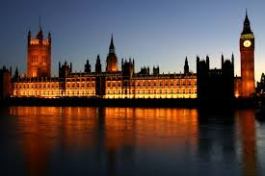More heat than light….
 Whatever you think about Ed Milibands proposal to freeze energy bills it has certainly set the political weather over the last few weeks. Anybody who lives in the real world, of falling wages, of declining job security but ballooning costs of living could not be failed to be impressed by this commitment and they can’t fail to doubt the necessity of something being done. It isn’t just the gas or the electricity bill that is effected, I have just received notice of a rent increase which directly cited the continuing high cost of utilities.
Whatever you think about Ed Milibands proposal to freeze energy bills it has certainly set the political weather over the last few weeks. Anybody who lives in the real world, of falling wages, of declining job security but ballooning costs of living could not be failed to be impressed by this commitment and they can’t fail to doubt the necessity of something being done. It isn’t just the gas or the electricity bill that is effected, I have just received notice of a rent increase which directly cited the continuing high cost of utilities.
So, something must be done, and even those parts of the Conservative Party which are more in-touch with the real world thank the current leadership, like John Major who has spoken out to his credit, recognise that this is the case. Labour’s solution is bold and I believe it has the hearts of the electorate in that it addresses a real problem. However, the case needs to be made intellectually that this can be done as I dont believe the public is 100% convinced the idea is practicable.
Politicians have lost the art of explaining things because they wrongly assume it is no longer necessary in the era of soundbite and spin. The dumbing-down of politics is becoming a self-fulfilling prophecy which is leading to increased voter apathy and disengagement. It is exceptionally arrogant of politicians and the political class to assume that people dont have the capacity to absorb and comprehend complex arguments and make well informed decisions. The media has a part to play here as it has had an undoubted role in elevating perception over content. This is something politics as a whole needs to address but it is now a pressing issue for Labour in particular.
Shaking hands with yourself….
 ‘The Center Ground’ is one of those great political mythical beasts that many talk about but few have been able to actually describe in much detail – in that regard it is about on a par with the Loch Ness Monster. However, like most myths, it is based on a fundamental truth, in this case the truth that to win political power in a Westminster election you need to do so by building strong voter coalitions – neither main political party, let alone those at the fringes, have a strong enough core constituency to propel them to power.
‘The Center Ground’ is one of those great political mythical beasts that many talk about but few have been able to actually describe in much detail – in that regard it is about on a par with the Loch Ness Monster. However, like most myths, it is based on a fundamental truth, in this case the truth that to win political power in a Westminster election you need to do so by building strong voter coalitions – neither main political party, let alone those at the fringes, have a strong enough core constituency to propel them to power.
In that regard, an electoral pact between the Conservative Party and UKIP, is one of the most nonsensical political propositions there is; especially for the blue team. In essence, the Conservative Party would be making an electoral pact with itself because UKIP core support is ex-Conservative core support. Of course, there are others, the protest vote and a not insubstantial number of disaffected ex-Labourites but nowhere near enough, mathematically speaking, to compensate for the hardening of disaffected Lib Dems behind the red team.
The fact that it is even on the political agenda says alot more about the creeping desperation of the Conservative Party to do anything to remain in power than anything else. Most Conservative activists support such a move because they secretly wish they were in UKIP – this way they get to retain the chance of governing while espousing views that they find entirely wholesome and more in line with their own. More profoundly though and more worryingly for those gathering in Manchester it signifies the complete inability of the Conservative leadership to do what Margaret Thatcher did so well – build the kind of voter coalitions that keep the Party in power and over the magic 40% mark.
David Cameron failed to do this in 2010 when the odds were stacked heavily in his favour so nothing shows he could do it in 2015 where the climate is less hospitable. ‘Compassionate Conservatism’ may have been an awful lot of fluff and bunkum but it was at least outward looking, it looked to attract broader support, but now even that is gone, replaced by the kind of blue in tooth and claw politics that the grassroots love but is hardly the stuff of winning elections. Policy wise, the governing Party is becoming insular and inward looking and it is making the opposition look like a policy colossus – which says it all really. An electoral pact with UKIP is not the electoral panacea that the Conservative Party needs, a change of leadership is, and it is only a matter of time before more and more Conservatives realise that.
Supply-side socialism…..
 Ed Miliband’s announcement that Labour would freeze energy prices for 20 months has attracted many plaudits and rightly so, there is little doubt that the energy giants need to be tackled. In many ways it marks progress from the Blair years and the windfall tax because it is accompanied with proposals to tackle the fundamental inequities of ownership within the energy market where as the windfall tax was a superficial solution to a deep-rooted problem. It also marks the evolution of a new strain of socialist thought which is moving away from producer led redistribution to consumption led redistribution, it is, the socialism you may say of 38 Degrees. Underpinning this historic shift in thinking is the historic weakness of collective producer, ie, trade union power.
Ed Miliband’s announcement that Labour would freeze energy prices for 20 months has attracted many plaudits and rightly so, there is little doubt that the energy giants need to be tackled. In many ways it marks progress from the Blair years and the windfall tax because it is accompanied with proposals to tackle the fundamental inequities of ownership within the energy market where as the windfall tax was a superficial solution to a deep-rooted problem. It also marks the evolution of a new strain of socialist thought which is moving away from producer led redistribution to consumption led redistribution, it is, the socialism you may say of 38 Degrees. Underpinning this historic shift in thinking is the historic weakness of collective producer, ie, trade union power.
However appealing it may be, it is a limited way of addressing the fundamental inequities of capitalist economic structures because it accepts consumption should be the motor of economic growth. Consumption is in fact a very volatile and bad way to drive economic growth that is sustainable and the credit crunch should have taught us that but it still seems we have a way to go to learn this lesson. Regulated, rationally and democratically planned production remains a better, far more effective, way of stopping the boom and bust cycle. An element of that is implicit in supply-side socialism but it stops short of the logic of its own positions.
Supply-side socialism also faces the problems caused by a globalised system because it can only be effected within national borders or at best transnational blocs like the European Union. This makes it a short-term, albeit welcome, potential spell of temporary respite for Britain’s hard-pressed people. In taking this stance Ed Miliband has shown some courage and dash which should be applauded, however, rather than actually solving the problems we face he is starting to hint at some possible solutions. It is a shame, for example, these measures are not to be accompanied by encouragement for the growth of energy co-operatives, although some will no doubt be amoung the beneficiaries of these proposals. As things stand, supply-side socialism is an interesting work in progress rather than the all encompassing vision it needs to be.
Poor politics, worse economics…..
 Ed Balls was headlining today at the Labour conference. It was his indication that High Speed Rail 2 might be hitting the buffers which made the headlines but I have to confess to being continually mystified by his obsession with sticking to government set spending limits. I am sure it will be said that this is ‘sensible’ fiscal policy but in reality it has little to do with fiscal policy. His commitment can be easily torpedoed by the simple fact that it is highly unlikely that a majority Conservative government would stick to its own self-imposed limits. Indeed, the pattern for this Parliament is that George Osborne has been consistently forced to ignore his own limits on borrowing by his scorched earth austerity economics which has bled demand out of a struggling economy like a determined and very hungry leech.
Ed Balls was headlining today at the Labour conference. It was his indication that High Speed Rail 2 might be hitting the buffers which made the headlines but I have to confess to being continually mystified by his obsession with sticking to government set spending limits. I am sure it will be said that this is ‘sensible’ fiscal policy but in reality it has little to do with fiscal policy. His commitment can be easily torpedoed by the simple fact that it is highly unlikely that a majority Conservative government would stick to its own self-imposed limits. Indeed, the pattern for this Parliament is that George Osborne has been consistently forced to ignore his own limits on borrowing by his scorched earth austerity economics which has bled demand out of a struggling economy like a determined and very hungry leech.
The recent recovery has been brought and purchased by this government, by stealth, completely reversing its attitude to state borrowing and it is this contradiction, between needing to appear as austerity obsessed but in reality borrowing like a madman that will eventually bring the fragile recovery crashing down. This core contradiction is unsustainable in the long-run but it may be sustainable long enough to purchase the Conservative Party electoral success. Ed Balls however recognises none of this and indeed proposes to continue along the same route for the sake of political positioning.
In fiscal policy, the ‘wait and see’ position is entirely acceptable because most people realise that Ed Balls has no possible way of knowing what the right policy will be if he takes the reins. At least he was shrewd enough to sneak in a get out clause by saying they would be a “starting point” but what appears to be sensible politics, projecting an image of continuity, is in fact deeply ruinous to Labour’s core economic message, that the government got it wrong economically. The same trick worked in 1997 but that was then and this is now, its the wrong political message for an insurgent opposition seeking to portray itself as radical break from its own past and from the current administration. It will do nothing for Labour’s economic credibility, in fact, it greatly diminishes that credibility because its based on fuzzy logic and looks oh so duplicitous. Do we really think the electorate are that stupid? I hope not. I do think Labour’s key strategic thinkers probably are though, they are cooing over what they see as a masterstroke while the government and especially Mr Cameron and Mr Osborne snicker behind their hands.
A battle for Labour’s soul?
 The GMB’s precipitous reduction in funding to the Labour Party could well herald the dawn of a new era in labour movement politics. It is more than likely other trade unions will soon follow suit and that a de facto semi-separation will exist between the trade unions and the Party they formed. Some are seeing this as a battle for Labour’s soul and indeed it looks that way to many outsiders and indeed some influential insiders seem to feel the same way.
The GMB’s precipitous reduction in funding to the Labour Party could well herald the dawn of a new era in labour movement politics. It is more than likely other trade unions will soon follow suit and that a de facto semi-separation will exist between the trade unions and the Party they formed. Some are seeing this as a battle for Labour’s soul and indeed it looks that way to many outsiders and indeed some influential insiders seem to feel the same way.
It is important to remember it need not have been this way. Indeed, what made it this way was the leaderships grand design, they stitched-up an Aunt Sally in Falkirk, an invented an excuse to beat the union bogeyman. It was wrongly decided that a confrontation with the unions would be totemic and shift voter perception of the Party and its dithering leader.
However, in taking this approach, Mr Miliband has made a rod for his own back and is on a hiding to nothing. This tack will potentially alienate people like me who would support the reforms as a good idea in practice but will be concerned about the principal behind them. Furthermore, even if the reforms pass, the victory may well be Pyrrhic, coming at the cost of a large chunk of Labour’s money and a huge dent in the Parties morale caused by the bitterness the issue will invariably introduce into inner-Party relations.
This whole episode has sadly continued to illustrate the lack of joined-up thinking at Labour’s top table. Now we are committed to a much bloodier, more costly, battle than ever should have been the case, this is a battle for Labour’s soul but it shouldn’t have been.
Britain’s crisis of governance…..
 It will not surprise the readers of this blog to know that I was overwhelmingly relieved by the result of the Parliamentary vote on Syria on Thursday. Opponents of military action got the perfect result, Labour’s ‘road map to taking a decision and maybe taking action’ fell and so did the governments motion. In the short term at least, British involvement in military action against Syria is politically impossible, although it is not ruled out long-term.
It will not surprise the readers of this blog to know that I was overwhelmingly relieved by the result of the Parliamentary vote on Syria on Thursday. Opponents of military action got the perfect result, Labour’s ‘road map to taking a decision and maybe taking action’ fell and so did the governments motion. In the short term at least, British involvement in military action against Syria is politically impossible, although it is not ruled out long-term.
Thursdays result has both ushered in and highlighted an ongoing crisis of governance in Britain. We are lumbered with a government that is now even more diminished than it previously was and an opposition which remains ineffective and, I would argue, totally unable to land a killer blow. Ed Miliband’s Commons performance on Thursday was poor, it summed-up the contradictions of his position, in his heart he obviously is a Syria hawk, or else he would have ruled action out, but politically he is being backed into an oppositionist corner; as the Spectator rightly pointed too, his speech lacked oomph because it lacked true conviction he was doing the right thing in his own eyes. Although in the short-term this may look like a strong position, in fact, it is a terribly weak position and Ed Miliband will more than likely be left all at sea by coming events.
Over the road, complete bedlam has taken over in Number 10. The Conservative back room operation hasnt been the same since Steve Hilton left and Lynton Crosby is no Steve Hilton, he is an attack dog desperately in need of a cast-iron muzzle. This is the latest in a long and growing line of disasters for the Conservative machine, the last notable one was when they were ‘out-whipped’ by their own rebels in the House of Lords vote. David Cameron is looking incredibly shaky and unless he does something quick this will be a death spiral for his leadership as well as the government itself.
So, what we have is a government incapable of governing and an opposition unable to take the government down, all of which equates to a big black hole where the governance of Britain should be. This does present a clear opportunity to the likes of UKIP, who must be rubbing their hands as the three main parties tie themselves in Gordian knots, and is a serious concern for the rest of us. The issue of Syria isn’t going away nor are the shockwaves it has sent through British politics.
Labour should oppose a Syrian intervention….
 It looks like Britain is being shoehorned into another military sally, this time in Syria. Parliament is to be recalled on Thursday and the Cameron and Clegg double-act are to lead the three-ring circus in approving a strike following Bashar-Al-Assads use of chemical weapons. Incidentally, before we move on folks, isnt it so beautifully ironic to see Nick Clegg in this position? Another part of the Lib Dem soul is not so much chipped as hack-sawed away.
It looks like Britain is being shoehorned into another military sally, this time in Syria. Parliament is to be recalled on Thursday and the Cameron and Clegg double-act are to lead the three-ring circus in approving a strike following Bashar-Al-Assads use of chemical weapons. Incidentally, before we move on folks, isnt it so beautifully ironic to see Nick Clegg in this position? Another part of the Lib Dem soul is not so much chipped as hack-sawed away.
Regular readers of this blog will know I don’t oppose intervention per se. By that I mean I don’t take the traditional left-wing position that all intervention is totally evil, I rather take the view that sometimes evil itself is sometimes a necessity and therefore have supported interventions in the past, (in Libya, principally). I think the traditional left-wing perspective, much like an awful lot of things, is simplistic and therefore potentially somewhat stupid on occasions. It is based on a world view that has barely taken a step forward since Lenin was running around (justly in his own particular case) damming Imperialsm; the highest stage of capitalism.
In this case though, opposition to intervention is justified, not because the Al-Assad deserves anything less than to be a smoking ruin but because the whole enterprise is too risky in terms of the wider geo-political ramifications. This is unfortunate for the people of Syria who suffer under the yoke of Al-Assad but is the cold hard way these things have to be considered. The election of Hassan Rouhani in Iran has opened up the possibility for a process of reform to begin. If, however, Western jets take to Syrian skies this could imperial the progress being made in Iran.
Meanwhile, it is only a matter of time before both Russia and China have to move beyond issuing ‘dire warnings’ and actually do something. Obviously, ‘doing something’ could eventually have fatal consequences for NATO especially which is effectively the living dead in any case. In short, the problem with embroiling ourselves in Syria directly (and by this I mean British and American jets in Syrian skies) is that the consequences would be totally uncontrollable.
It is natural when seeing people in distress to respond to the interventionist argument, indeed, in many ways it is in many ways a good thing that people do, that they feel the impulse to end the distress of those suffering and are prepared to use whatever means to do it. However, this cant be the basis on which these decisions are made, they have to be made in the cold hard light of day, and in that, this government is taking a reckless course of action which Labour should do its duty as an opposition on Thursday and oppose.
The Tragedy of Tom Watson….
 Tom Watson recently gave a candid interview too The Guardian; in it he pointed to the huge injustice done to Unite and too Labour by the meddling of the leadership in the Falkirk selection and its exploitation for their own political agenda. I can’t help but feeling reading the interview that the loss of Tom Watson is a huge blow to the Labour election machine and more than that, it poses some worrying problems for politics in general.
Tom Watson recently gave a candid interview too The Guardian; in it he pointed to the huge injustice done to Unite and too Labour by the meddling of the leadership in the Falkirk selection and its exploitation for their own political agenda. I can’t help but feeling reading the interview that the loss of Tom Watson is a huge blow to the Labour election machine and more than that, it poses some worrying problems for politics in general.
Mavericks, individuals with minds of their own tend not to be rewarded well by our rather machine-orientated way of doing politics. Party machines and MP’s tend to have a co-dependent relationship; the finance and organisational support required to win an election are provided by them. Careers are dependent on the ‘good favour’ of the boss, ie, the Party leader and furthermore, MP’s are expected, in theory at least to represent a broad spectrum of opinions (something that is impossible realistically, an MP can never represent all their constituents opinions).
Little incentive therefore exists for politicians to speak out and take a stand. On the face of this many people would see this as a good thing but it is not. It reduces trust in our politics because politicians are structurally coerced into toeing the line. It increases also the alienation of the political process from the individual, affects participation rates and in general is bad for democracy.
Political parties should be spaces for dissent and should be culturally geared too the expression of a thousand different ideas. Individuals who have opinions should not be pariahs or feel they are put in a position where they have to resign. If this does not happen then it may not just be the careers of talented individuals at stake but also the long term health of our political democracy.
Labour’s crisis of confidence…
 It is the summer time, traditionally the time when footballers return from holiday and when politicians enjoy a particularly long one. However, no such luxury has existed for Ed Miliband who it has been announced this morning is planning a fourth reshuffle. This comes amid opinion polls showing a slow but perceptible and steady erosion of Labour’s position and news the economy is growing. Labour’s polling position and its decline is a vindication of all those who have been rightly insisting that even when the advantage was reaching dizzying heights that this was not built on solid foundations and does not necessarily precede a certain election victory. Who now can seriously insist that this was not true?
It is the summer time, traditionally the time when footballers return from holiday and when politicians enjoy a particularly long one. However, no such luxury has existed for Ed Miliband who it has been announced this morning is planning a fourth reshuffle. This comes amid opinion polls showing a slow but perceptible and steady erosion of Labour’s position and news the economy is growing. Labour’s polling position and its decline is a vindication of all those who have been rightly insisting that even when the advantage was reaching dizzying heights that this was not built on solid foundations and does not necessarily precede a certain election victory. Who now can seriously insist that this was not true?
Andy Burnham has rightly spoken out and called for Labour to ‘shout louder’ and pointed to the very real risk of electoral defeat. I am not sure a Shadow Cabinet reshuffle is quite what he had in mind and neither am I convinced it is the panacea that is needed. It is certainly true that there are a dearth of ‘big hitters’ sitting around the top table and there are some, like Stephen Twigg, whose presence should no longer be required. However, it would be naive in the extreme to see this as the most pressing problem, it is rather a symptom of the wider malaise which is the lack of a discernible strategy and a broader vision for Britain.
If you don’t believe me, ask yourself why the main focus of the upcoming conference is internal Party reform. What special kind of stupid suggests to the leader and his advisors that in times when your poll lead is declining, the economy is recovering and the punch drunk government is pulling itself off the ropes that this is what you should be worrying about? Also, it is worth noting that ‘One Nation’ Labour, which was a success at last years conference and should be being built upon this year, seems to have fizzled and faded like a fire cracker under the sea.
What we have amounts to a crisis of confidence and that crisis of confidence stems from a lack of clarity, a lack of drive and vision right at the very top. When asked ‘How will Labour make Britain better’ Labour activists have no answers provided too them by the leadership which is too busy navel gazing (thinking a reshuffle is the answer proves this point beyond contention), the poll lead is shrinking, fundamental issues remain unaddressed (like the leaders poor ratings and Labour’s poor polling on the economy), in turn, Labour MP’s and even members of the Shadow Cabinet are losing confidence – how then can Labour and its leadership expect to inspire confidence in the electorate that they are fit to govern?
‘Machine Politics’ is alive and kicking in the Labour Party…
 Ed Miliband, following his ill-advised and discredited sortie into Falkirk, pledged to end ‘machine politics’. It is a noble sentiment indeed and one that should be applauded. However, the proof of any pudding is in the eating and for those involved in the local politics of Peterborough Labour Party, this particular pudding tastes sour.
Ed Miliband, following his ill-advised and discredited sortie into Falkirk, pledged to end ‘machine politics’. It is a noble sentiment indeed and one that should be applauded. However, the proof of any pudding is in the eating and for those involved in the local politics of Peterborough Labour Party, this particular pudding tastes sour.
The leadership of the local Party has reportedly been endorsed by the national Executive Committee, one which Ed Miliband sits on. However, the selection is mired in allegations of vote-rigging, perhaps most seriously, the suggestion that postal votes were rigged. The culture of the local Party is such that it is run by a small, self-serving, clique who care little for democracy and mostly about their own position. They are engaged in a antediluvian struggle with rival personalities, some within the neighbouring North West Cambridgeshire Constituency Labour Party the content of which has little to do with substantive political differences and everything to do with petty personal feuding.
Sadly, the culture of both local parties is twisted and distorted by this feud, Peterborough CLP is currently preparing a witch-hunt against dissenters and has rather incredibly co-opted a Party full-timer onto its ruling EC. The national Labour Party machine therefore has a representative on the sovereign representative body of an organisation that is supposed to represent the interests of Party members. Sounds a bit like ‘machine politics’ to me; little doubt can exist as well that the endorsement of the national EC has emboldened the local leadership in launching it’s witch-hunt.
My estimation is that the national leadership made a political decision not to ‘rock the boat’ in what is ultimately a key-seat. This may make some sense politically but makes considerably less sense when you realise it is dependent upon the silence and complicity of Labour members, many of whom have had enough.
Enough issues and concerns exist in Peterborough Labour Party to merit serious investigation and consideration yet it appears the Party machine has once again intervened against the interests of Labour members, the Labour supporting electorate of Peterborough and more broadly the long-term aims and objectives of the Labour Party. It has chosen to side with a local leadership whose democratic credentials and conduct are at best open to question and in doing so is going back on Ed Miliband’s word to end machine politics in the Labour Party.
Recent Comments